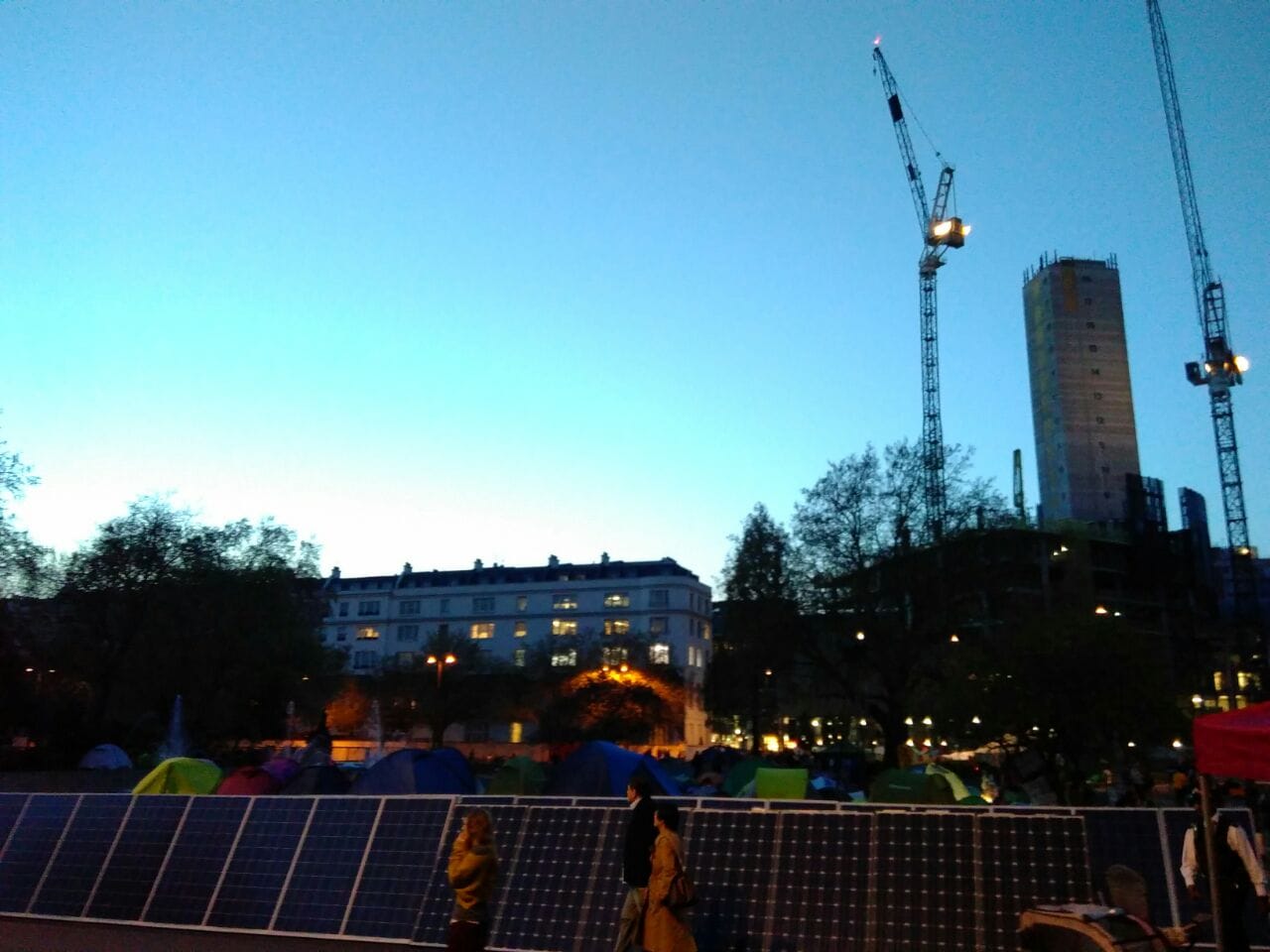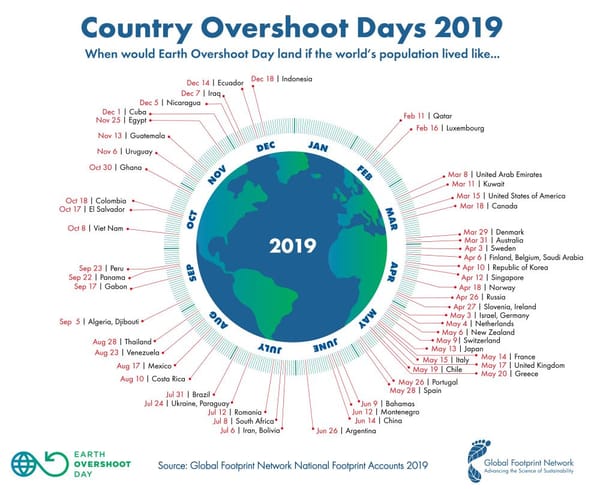No Silent Spring with Extinction Rebellion
Extinction Rebellion movements are the counter-culturalism of the 21st century

The past nine months have seen the birth of Extinction Rebellion in the UK, the global school strike for climate movement and, of course, the weekly Sustainability column in Felix. Before the newspaper goes on hiatus until October, it seems only fitting to report on the events which, to a large extent, played out just across the park from Imperial College this April.
The aforementioned environmental movements are a counter-culture of the 21st century, opposing the elements of society they see as culpable for environmental damage and the present climate crisis, much as the counter-cultural movement of the '60s opposed war, particularly the nuclear variety. The first environmental movement arose in response to the over-use of the insecticide DDT, whose unintended threat to human and natural life was made known by the biologist Rachel Carson in her book Silent Spring. Is the most recent wave of activism anything new? Are Extinction Rebellion, and related movements, having a meaningful impact?
As with the movement against DDT, science has been the trigger for recent protests. Extinction Rebellion cites the 2018 Intergovernmental Panel on Climate Change (IPCC) report, which predicts that emissions of greenhouse gases must reach net zero by 2050 in order to avoid a heating of more than 1.5 degrees Celsius, as one of their sources of motivation. Extinction Rebellion echoes the message of the Campaign for Nuclear Disarmament when they argue “humanity, as well as life on Earth, is facing a ‘direct existential threat’”. Extinction Rebellion has re-framed the debate on climate change and added urgency to the discourse on climate change Secondly, it promotes active participation in tackling the climate crisis. The decentralised networks that it builds up in the preparation for the protests give spaces for communities to meet and campaign on environmental issues. This physical interaction, lacking in one-way dissemination of information via traditional and social media, may help to achieve the changes in lifestyle and culture that the IPCC argue “have a considerable influence on energy use and associated emissions”, and may influence new groups of people such as high street shoppers. Direct action forces want to act as a representative of the environmental movement not just as a citizen, but also as a friend, child, parent, employee, or employer. Of course, activism alone won’t achieve the decreases in emissions necessary to avoid a long-term warming of 1.5°C, but equally an economy geared for exponential growth and legislation supporting this will fail.
Unarguably, the Extinction Rebellion movement is controversial. Their policy of advocating non-violent civil disobedience saw 1130 arrests in ten days from activists. So far seventy people have been charged but police have admitted that they have limited sentencing powers for further arrests. The actions have included acts of rebellion ranging from unfurling a banner saying “don’t jail the canaries” from a DLR train in Canary Wharf in response to the role of the financial services in funding environmental destruction, to lining Westminster Bridge with plants during ten days of protest in April. Despite bringing central London to standstill they received a significant amount of support. Just after the aforementioned protests, a quarter of 2000 UK citizens who responded to a poll by ComRes agreed with the statement “I support the aims and tactics of Extinction Rebellion”, the majority (43 %) responded that they didn’t know, and a third disagreed.

These mixed responses suggest that environmental movements have the potential to be divisive. Unlike avoiding nuclear war, the benefits and costs of climate change mitigation, the challenges in achieving it, are less obvious. I spoke with a Green party candidate at a later protest who argued that, to achieve a zero-carbon economy by the IPCC deadline of 2050, the UK needs to invest in wind and solar generation, but was unable to give any figures to support his argument nor to counter the challenges of supply and demand, the greatest challenge at present. Giving people facts is key. Human activities have caused a rise in global temperature of one degree Celsius since pre-industrial times. Students and academics have the ability to testify to these facts, and these facts need to be heard on the streets.
Furthermore, civil disobedience can exclude people who could lose the right to work, study or the ability to pursue a certain profession should they be charged. When I visited the protests at Marble Arch, many protesters seemed to be in fairly financially secure situations and of a left-leaning persuasion. Though the movement describes itself as non-partisan, some of the messages mixed the separate issue about Brexit with the climate debate. In a country which voted, rightly or wrongly, for an exit from the EU, mixing issues which are not related is dangerous. If too much emphasis is placed on tactics which exclude participation of certain members of society, this could be used to paint harmful stereotypes of the environmental movement such as that of the white middle-class “hippie” or the wealthy, tofu-burger-chomping millennial. Role-models of all creeds, countries and classes exist within the environmental movement and can support those from other sections of society to amplify environmentally positive culture. From Wangari Maathai, the founder of the Green Belt movement in Kenya, to Greta Thunberg, the sixteen-year old standing for the climate outside the Swedish parliament, environmentalists span all ages and continents.
Not all protesters I spoke with at recent environmental protests have a secure income, and it was clear that efforts had been taken to avoid religious or financial obstacles to participation. Coaches provided free low-carbon travel from all corners of the country to London and a self-organized network of environmentalists provided accommodation.
Tongue-and-cheek, one might even say that the protests provided benefits to London. They temporarily installed a solar farm at Marble Arch and provided a full-scale simulation of a zero-emission zone in central London. They also brought social co-benefits, protesters supported the local homeless community by providing free food and taking collections for the poor.

So, is environmental activism an effective strategy to tackling climate change? I argue it has a part to play. Extinction Rebellion has an enormous potential to build communities and place pressure on politicians. But there is a risk it could polarize opinions on the climate change. Uninformed activists can project a damaging image on the environmental issue, and its demand to reduce greenhouse gas emissions to net zero by 2025 are pretty radical to say the least. However, activism can help to create communities which support changes in lifestyle which may encounter resistance if introduced through legislation. The climate emergency requires action globally, and rapidly. Both top-down and bottom-up approaches are necessary to achieve this.
The public uproar from Silent Spring resulted in the US administration introducing a nationwide ban on DDT, though it was only in 1972, a decade after the publication of Silent Spring that this came into law. Extinction Rebellion achieved some of its goals more rapidly. The UK government announced a climate emergency on 1st May as a result of pressure from the Extinction Rebellion movement and has committed to net zero carbon emissions by 2050. But is this enough?
No.
Governments alone, through a top-down approach, have limited impetus or ability to make the necessary social changes to tackle the climate emergency. Before 2050 there will be at least six general elections and, as has been shown in the US with Trump’s withdrawal from the Paris Agreement, future politicians may not respect words written on paper by current ones. What action “the climate emergency” needs is not yet well defined, but surely a cultural shift means more than banning plastic straws. Bottom-up approaches from environmental movements can help to create communities to facilitate changes in lifestyle, and hold governments accountable to their commitments.








